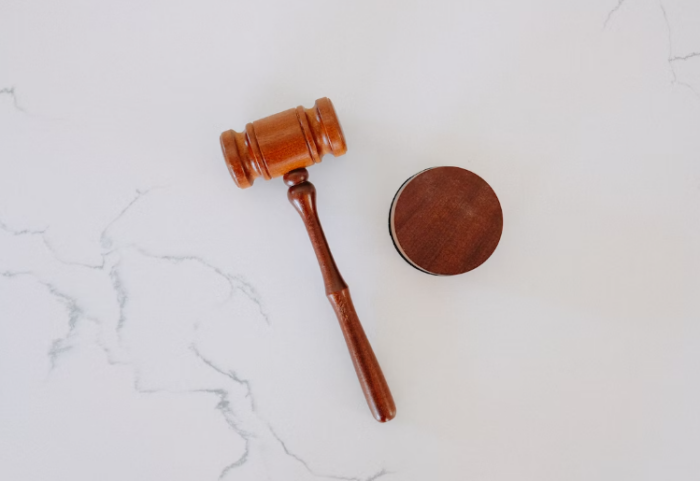25 May What are Undertakings in Law?
 Author: Zeinab Farhat, Progressive Legal
Author: Zeinab Farhat, Progressive Legal

As a business owner, you may find yourself in situations where signing undertakings becomes necessary. In this article, we discuss the importance of understanding undertakings as a business owner.
These undertakings can encompass a wide range of scenarios, including contractual agreements, court proceedings, regulatory compliance, or the resolution of disputes.
Understanding the risks of signing undertakings is vital as they carry significant legal implications. Failing to grasp their nature and consequences exposes you to legal liability. Ensuring you understand them can help you protect yourself and your business from potential legal risks.
This article will consider:
- What is an undertaking in law?;
- What are the different types of undertakings?;
- When should I use an undertaking?;
- How to write an undertaking?;
- Steps involved in creating undertakings;
- What happens if there is a breach of undertakings?; and
- Key takeaways.
What is an undertaking in law?
An undertaking is a legal promise or commitment to perform an act, which may be legally binding if executed properly. Undertakings may ask one party to commit to do something by a certain date, not to do something, and/or to pay a certain amount of money.
What are the different types of undertakings?
Different types of undertakings may or may not be enforceable. Some examples of undertakings are:
Contractual undertakings
They refer to promises made between two or more parties that are legally binding and involve an agreement to either perform or refrain from performing a specific action.
It is important to consider when drafting contracts, the nature and scope of the undertaking, and whether the contract as it is constructed reflects both parties’ intentions. This is especially true if you are the party which has a contractual obligation to comply, or give effect to, the undertaking.
Fiduciary undertakings
In some situations, an undertaking may be considered a fiduciary undertaking. Put simply, this arises where you act on behalf or in the interests of another person. As noted by his Honour Mason J in the eminent case of Hospital Products v USSC (1984) 156 CLR 41:
The critical feature of these relationships is that the fiduciary undertakes or agrees to act for or on behalf of or in the interests of another person in the exercise of a power or discretion which will affect the interests of that other person in a legal or practical sense.
It is important to note that a fiduciary relationship can found on the basis of an existing contract. However, whether a party is subject to a fiduciary obligation, and the scope of such obligation is dependent on “construing the contract as a whole in light of the surrounding circumstances known to the parties and the purpose and object of the transaction” (ASIC v Citigroup Global Markets Australia Pty Ltd (No 4) (2007) 160 FCR 35).
Example: If you are currently working pursuant to a contract of employment, it is accepted that this includes an implied duty of good faith on part of the employee (Del Casale v Artedomus (Aust) Pty Ltd [2007] NSWCA 172).
Alternatively to the above, fiduciary undertakings are not confined to those undertakings which arise in a contractual context. See for example, Grimaldi v Chameleon Mining NL (No 2) [2012] FCAFC 6 which notes that a person is in a fiduciary relationship with another when that person has undertaken to perform such a function.
Professional undertakings
Certain professions recognise that in particular circumstances an undertaking may be binding on the person giving it. For example, pursuant to rule 6 of the Legal Profession Uniform Australian Solicitors’ Conduct Rules, a solicitor who gives an undertaking in the course of legal practice must honour that undertaking, unless released by the recipient of that undertaking or a relevant court (r 6.1).
If you are a solicitor, it is important to be mindful that if you breach an undertaking owed to a client, your conduct may constitute unsatisfactory professional conduct or professional misconduct.
Statutory undertakings
These involve a legally binding promise made by an individual or company to comply with the regulations or provisions set forth in a statute or regulatory scheme. Such undertakings are typically required by law in order to obtain specific licenses or permits.
Unconditional undertakings
One example of unconditional undertaking is a financial guarantee. A financial guarantee provides a guarantee to the customer on the basis that if any events provided for by the guarantee occur, the guarantor is to pay out the funds in order to compensate the beneficiary of the guarantee.
Judicial undertakings
They are promises made by parties involved in litigation to perform or abstain from certain actions in order to comply with the Court’s requirements and settle the case. A pertinent example, is the implied undertaking, otherwise known as the “Harman Undertaking”.
Put simply, the Harman Rule provides that without leave of the Court, a party receiving documents cannot use the documents for a purpose beyond the litigation in question. The Harman undertaking is owed to the Court by the party receiving the documents and said party can only be released from the undertaking by the Court. The Harman undertaking applies to different documents, such as and not limited to:
- Documents that have been produced under a subpoena;
- Documents which have been produced on discovery during a court proceeding; and
- Documents which an arbitrator has provided a direction for.
For example, a company may give undertakings to the ACCC of which undertakings that pertain to the Competition and Consumer Act (CCA) are called “enforceable undertakings”. If the company is determined to be in breach of the CCA, this may result in payments to the ACCC, changes to business practices, or providing information to the ACCC by the company.
Where the Commissioner has found that an undertaking which was accepted under s 56EW of the CCA has been breached, the Commissioner can apply to a relevant Court for an order directing the person/ company to comply with the undertaking. Relevant Courts include: the Federal Court, the Federal Circuit and Family Court of Australia (Division 2), or a Court of a State or Territory that has jurisdiction in relation to the matter (s 56EW(3)).
When should I use an undertaking?
Undertakings can be used in various situations, such as:
- Ensuring that a party will comply with a court order;
- Guaranteeing that a party will perform its obligations under a contract; and
- Ensuring that an infringing party complies with demands put forth in a legal letter.
For example, if you receive a Cease and Desist Letter for passing off or trademark infringement, it may be accompanied by an undertaking for you to sign. Such undertakings essentially demand that the infringing party promises to accept and carry out the demands in the undertaking. Among other things, this could include:
- That the infringing conduct is ceased permanently;
- That the infringing party pay compensation;
- That the infringing party material is taken down; and
- That the infringing party apologise.
How to write an undertaking?
If you are considering drafting an undertaking, it’s important to speak with a lawyer prior and to obtain legal advice.
Undertakings should include certain requirements such as:
- The name of the party (either individual, company or both);
- The date when the undertaking comes into effect;
- A description and acknowledgement of the acts or practices which are of concern;
- An outline of specified steps they will take to correct the act or practice and ensure that it is not repeated or continued; and
- The steps the accused will take to notify individuals affected by the act or practice.
Steps involved in creating undertakings
The steps involved in creating an undertaking include notifying the contravening party, negotiating the terms, accepting the undertaking, communicating the decision, and ongoing monitoring.
Notifying the contravening party
In enforceable undertakings, for example, when a cease and desist letter is issued to a party committing trade mark infringement or the tort of passing off an undertaking will often be sent to the contravening party in addition to a letter explaining the contravention.
In other enforceable undertakings, a Commissioner or regulating body will bring up with the accused the possibility of an enforceable undertaking.
Negotiating the terms
The terms of a non-enforceable or enforceable undertaking can be negotiated between both parties.
Accept the undertaking
Once both parties agree to the terms of an undertaking (assuming the infringing party from our earlier passing off example) the infringing party will sign the undertaking by way of acceptance.
Note: it is not mandatory for a party to accept to forgo an undertaking at all. If you are uncertain, its best to talk to a legal professional about the options available to you.
Communicating the decision
In a non-enforceable undertaking, the return of the signed undertaking to the party that is being passed off, for example, is how the acceptance of the undertaking is communicated to the other party.
In an enforceable undertaking, the appropriate regulating body may communicate the Commissioner’s decision to the party who will be taking the undertaking.
Ongoing monitoring
It is the responsibility of the infringing party to monitor their compliance with the undertaking in both types of undertakings.
In an enforceable undertaking, the appropriate regulating body may monitor the infringing party’s compliance with the undertaking by periodically keeping in touch with the, and/or by expecting the infringing party to provide periodic reports regarding compliance, to the regulating body.
Despite this, it is always best after the issuing of undertaking to monitor sporadically whether the infringing party is complying with the undertaking after acceptance.
Breach of an undertaking
To breach an undertaking means that the infringing party has not complied with a part or the entirety of an undertaking. If the “infringing party” breaches an undertaking and is subsequently taken to court, the court may not be able to enforce the undertaking in some situations. However, the party in breach may still be liable for damages, or in other words, they may have to pay to the other party the money the other party has lost (for example, had to spend on legal fees) because of the breach.
If a person breaches an enforceable undertaking, the consequences can be serious. Depending on the nature of the breach, the court may order the person to comply with the undertaking, or it may find the person in contempt of court and impose a fine or sentence.
Key Takeaways
In summary, as a small business owner, it is important to understand what an undertaking is and how it can impact your business. Undertakings can be beneficial because they can be less costly and time-consuming than going through a full court process, but it is important to ensure that the undertaking is enforceable under the law.
If you are considering writing an undertaking, or if you have received an undertaking to sign, it is important to seek legal advice from one of our experienced litigation lawyers. Give us a call or fill out the contact form on this page to discuss with one of our lawyers.
Undertakings: Case Examples
Hearne v Street `{`2008`}` HCA 6 – Harman Undertaking
Hearne provides a useful summary of the Harman undertaking, in which it was noted:
“Where one party to litigation is compelled, either by reason of a rule of court, or by reason of a specific order of the court, or otherwise[66], to disclose documents or information, the party obtaining the disclosure cannot, without the leave of the court, use it for any purpose other than that for which it was given unless it is received into evidence. The types of material disclosed to which this principle applies include documents inspected after discovery[67], answers to interrogatories[68], documents produced on subpoena[69], documents produced for the purposes of taxation of costs[70], documents produced pursuant to a direction from an arbitrator[71], documents seized pursuant to an Anton Piller order[72], witness statements served pursuant to a judicial direction[73] and affidavits[74]..” at [96].
In Hearne, the High Court considered the issue of the implied undertaking not to disclose documents which had been generated and/or used for the purpose of court proceedings, for purposes other than those proceedings themselves.
Put simply, there was a litigation pertaining to noise generated from Luna Park in Sydney. Officers of the company had used some of the documents in the proceedings in a submission to the State Government Minister which had the effect of legislation being passed which sought to cure the noise complaints.
The residents groups then proceeded against the company officers for the contempt of court. As the groups were successful, the officers appealed to the High Court. Ultimately, the officers were found to be in contempt, and their appeal was unsuccessful.
Further to the key legal principle espoused at paragraph [96] of the judgement, it was noted, inter alia, that:
- it is common to speak of the obligation as flowing from an implied undertaking [97]
- in relation to express undertakings, the “point of insisting on a express undertaking…is to bring home explicitly to the minds of those giving it how important it is that the documents only be used for the purpose of proceedings. It does not follow that the obligation in question does not exist in more routine cases without the need for an express undertaking” at [116]
- the primary person bound to the obligation is the litigant who receives the document or information from the other person pursuant to the litigation [109].
Simic v New South Wales Land and Housing Corporation `{`2016`}` HCA 47 – Guarantees
In Simic, the High Court allowed an appeal regarding a decision from the NSW Court of Appeal pertaining to the construction of a bank guarantee contract. The appellant was the guarantor of a building company that had tendered for a building contract from the respondent, which was a housing corporation (“the Contract”).
As part of the Contract, the appellant provided security in the form of a bank guarantee (“the Bank Guarantee Contract”). The Bank Guarantee Contract had many errors such as the name of the respondent corporation. Ultimately, the Court allowed the appeal noting that:
“it is not possible to construe the undertakings as being in favour of the Corporation. However, the undertakings (as well as the underlying finance applications) should be rectified so that each refers to the Corporation” at [55].
As a result, the bank was bound to pay on the demands of the respondent and the appellants were obliged to pay the bank.
Ultimately, some principles arising from Simic include:
- The proper construction of each undertaking is to be determined objectively, by reference to its text, context and purpose. In relation to a commercial contract, this is determined by what a “reasonable businessperson would have understood those terms to mean”. Further, a commercial contract is to be construed on the basis the parties intended to produce a commercial result (citing Electricity Generation Corporation v Woodside Energy Ltd) at [78]; and
- The starting point for the proper construction of a undertaking is the language used in it [79].
Australian Competition and Consumer Commission v Woolworths Limited `{`2014`}` FCA 364; Australian Competition and Consumer Commission v Coles Group Limited `{`2014`}` FCA 363 – Enforceable Undertaking
Due to raising petrol prices, the ACCC sought to pursue litigation against Woolworths and Coles on the basis they had breached enforceable undertakings given by both to not provide petrol discounts over 4c/L.
As such, these cases concerned the proper construction of the undertakings given to the ACCC pursuant to s 87B of the CCA. The Federal court found that Coles had not breached the undertaking, however, Woolworths had breached its undertaking relating to fuel shopper dockets during the period of January – March 2014 as the 8 cents/L discount depended upon the acquisition of Woolworths supermarket goods and services.
As noted by Justice Robertson:
“the central question is whether the discount was contingent on the past acquisition of other goods or services from (Woolworths) supermarkets within the meaning of paragraph (10)(d)” at [41].
It was held that Woolworths had breached the undertaking in one offer period on the basis that it was an essential condition that in order to qualify for the discount, a purchase had to be made at a Woolworths supermarket.
Undertakings FAQs
What are the benefits of undertakings?
Undertakings can be beneficial because they can be less costly and time-consuming than going through a full Court process. It also allows the parties to continue to communicate and negotiate until an agreement is reached.
Who can give an undertaking?
Generally, there aren’t any limits on who can give or accept undertakings. However, undertakings that are enforceable under the law are usually given by an agency, an organisation, a small business operator or an individual (sole trader).
Can I vary, withdraw or cancel an undertaking?
Undertakings can be varied or revoked by the “infringing party” by way of discussion and negotiation with the side serving the undertaking in both contractual undertakings and statutory undertakings. However, in enforceable undertakings, the Commissioner is required to consent to the varying or revoking.
Looking for fixed-fee legal documents and services?
VIEW OUR PRICELISTTailor Made Legal Documents
We can provide you with tailored Legal Documents in a number of areas including: Intellectual Property Law, Commercial Law, Privacy Law, Workplace Law, Corporate Law, and Litigation / Dispute Resolution.
Click here to request a fixed-price Legal Document and have a look at the range of different documents we can help you with.
- 13 December, 2023
- 21 September, 2023

Zeinab has completed her Arts Law combined degree at the University of New South Wales. She helps Progressive Legal’s clients with their commercial, corporate and intellectual property protection. Zeinab enjoys building relationships with clients as well as co-workers, and believes a great sense of humour is vital.






